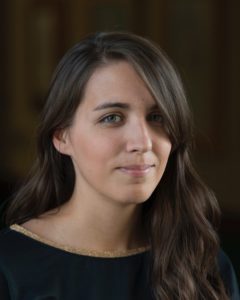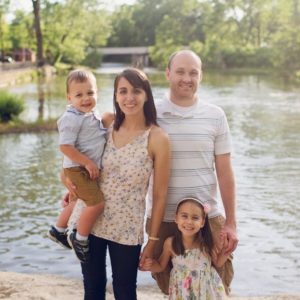The Joy of Solving Problems
ASG Engineer Marilyn Reuter shares how the thrill of finishing projects keeps her going — and empowers ASG clients to help people live better, healthier lives.
Marilyn Reuter is a technical writer — and so much more. While at ASG, she’s served as a project engineer and worked in risk management. Marilyn’s versatility and competence have earned her praise from both clients and colleagues. In this Q&A, she talks about the surprising joys of solving problems, collaborating with engineers and living a balanced life.
We’ve heard you love technical writing. Tell us why.

No one becomes an engineer to write reports every day. But I have to say I like it when I write a report and it all comes together. Most people consider documentation to be a boring part of the job. For me, seeing the finished project makes the whole process worth it.
When I was first joined ASG, I was hired on as a technical writer. Technical writing is the first step for moving into project engineering. You take information given to you and create a technical document on it. I worked a lot in manufacturing, so I would write a lot of the engineering reports that the engineers ran. As a project engineer, I moved to creating the data and the content as well as writing the report.
How does your background in aeronautical engineering shape what you do at ASG?
Aeronautical engineering is just a branch of mechanical engineering; you just focus specifically on aircraft design. In general, engineering teaches you how to think about and approach problems. That’s a skill I use every day at ASG.
Why did I choose aeronautical engineering? When I graduated high school and was trying to decide what I wanted to do, my dad said, “You’re good at math, why don’t you try engineering?” At the time the choices were either aeronautical or nuclear engineering. I enjoyed my time in college and liked my degree, but I wanted to stay in the Midwest, and the Midwest isn’t known for aerospace.
Tell us how ASG works.
ASG is a consulting company, but once we interact with the client, we’re on the project with them. Our engineers walk through the whole project with clients from start to finish and wherever they need it. ASG teaches employees to be versatile, and because of this, I’m familiar with all aspects of a project. I can look at it from every angle.

So, are you a project manager?
Because ASG is such a small company, I’ve been able to work in different areas and do multiple types of engineering as well as dabble in project management.
I’m a project engineer for the most part. I go into a project and do whatever it takes to get it completed. I work mostly in project management, risk management and systems engineering as well as technical writing. I also do a little bit of development.
Is there one area you’d call your specialty?
A PFEMA (Process Failure Mode and Effect Analysis) is a risk management tool and it’s specifically for manufacturing. It gives the risk of putting the project together and the risk for the patient. When I started working on PFEMAs, the client was implementing a new system for maintaining FEMAs and I was one of the first people to get the training for it. As the years went by, I became an expert on them and now I can see patterns and what to expect while doing them.
What do you like most about working at ASG?
One thing that has been helpful throughout the years is the flexibility. I started my family while working at ASG, and the fact that they let take time off to go to the kids’ appointments shows how much they support work-life balance.
Some days are more challenging than others. If you have a hard day at work and come home a little cranky, kids can push your buttons quickly. The good news is that ASG works with team members to ensure we have time for family and what’s important to us.
How has the pandemic changed your workday?
Most of my work hasn’t changed. We’re very mobile in how we work. The hardest part is that I have to be very intentional in connecting with my project team. When I was sitting at a desk and my project manager sat right behind me and I needed something I would just say, “Hey, what’s going on with this?” Now, we just have weekly check-ins online. That being said, the work I actually do is not that different.
I’m an introvert, and usually I’m perfectly content sitting at my work-at-home-desk in the corner of my bedroom. But when the isolation goes on for so long, you start to miss the interactions with your team and seeing your colleagues face-to-face.
What do you like to do for fun when you’re not working?
I’ve done taekwondo for about 20 years. Practicing taekwondo is a great stress relief for me, and I think it’s important that everyone know self-defense.
What are you looking forward to this year?
Business-wise, I have been getting into more project management, and I’m excited that I’m on the scheduling team for that.
Personally, my daughter is in her first year of school, and I’m excited to see how she grows. She has her first dance recital in May. My son is three and a little crazy. He just started soccer, and I’m looking forward to seeing how he matures.





